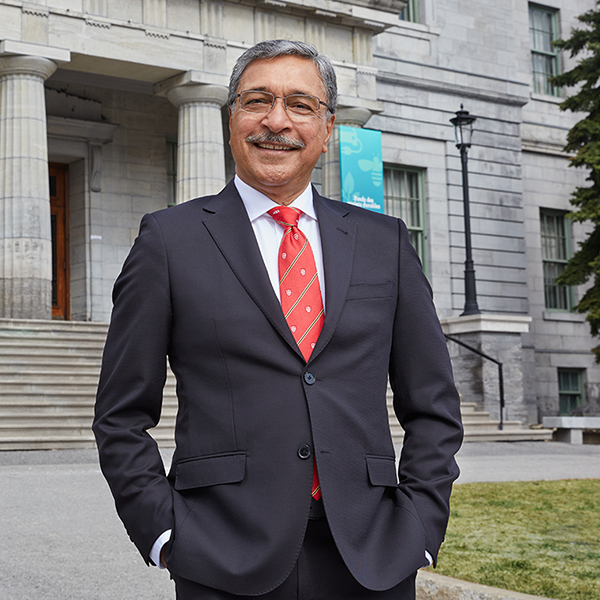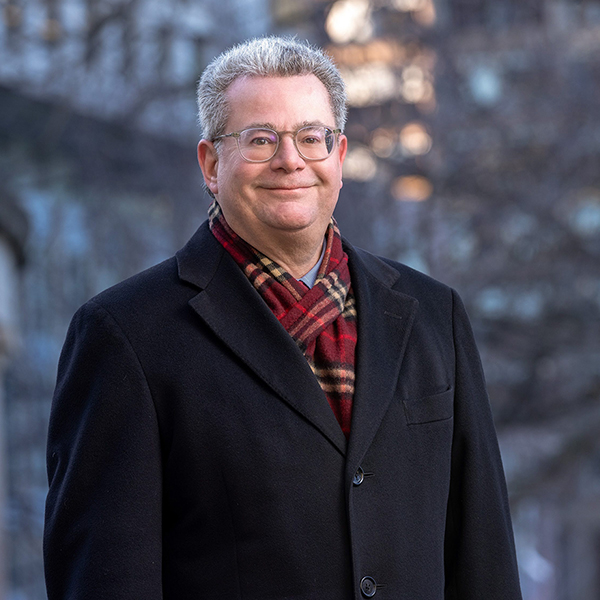If you had to sum up the McGill community’s response to the pandemic in a single word, what would that be?
Resilience. I have been very impressed, but not surprised, by the resilience of our community through so much uncertainty.
When the lockdown began in March, our professors and students had to rapidly pivot to complete their courses online. It was all done in a matter of two weeks. It is a real point of pride that our students were able to finish their winter semester, and our graduating students complete their degrees on time.
As we now know, that was just the beginning. Our faculty and staff worked continuously throughout the summer to deliver a robust remote teaching and learning experience for the fall semester.
What examples of reimagined connection have you seen?
One of the great things I have been able to appreciate is the creativity and commitment of people to stay connected. Let me give you a few examples.
Launched in mid-March, our University Advancement team organized weekly alumni webcasts, featuring McGill faculty speaking on the impacts of the pandemic and related challenges, from leading infectious disease expert Dr. Timothy Evans to climate change ecologist Professor Catherine Potvin.
Our spring and fall virtual convocation ceremonies could never replace the magic of gathering together in person, however, given the circumstances, they were special celebrations filled with moments of joy and hope. The version of “Hail Alma Mater” performed at Spring Convocation was perhaps the most uplifting one I have ever heard.
Speaking of music, our Schulich School of Music has found incredible ways to reach out and connect during the pandemic. In fact, their fall 2020 season is called “connections.” If you have not already done so, I highly encourage you to listen to their online series of concerts performed by our students and faculty.
And, of course, there is our alumni community. After all, staying connected is what they are all about. The At-Home Homecoming celebration was a success. There were many fascinating virtual lectures and discussions.
I spoke about resilience earlier, but another word that, for me, characterizes the McGill community and particularly our alumni, is generosity. The McGill Student Emergency Support Fund is a great example. I am profoundly touched by the generosity of our alumni community in supporting our students experiencing financial difficulties and needs particular to the pandemic. Their support is outstanding.
In your Thanksgiving message to the McGill community, you wrote about how you have come to see the COVID-19 pandemic as “a period of intense learning.” Can you talk about some of the things you have learned?
One of the most important things I learned is how we are connected in the academic community across the globe. Because of McGill’s involvement with the World Economic Forum, I had the privilege of chairing a series of dialogues among members of the WEF’s Global University Leaders Forum regarding the immediate and longer-term impact of COVID-19 on higher education.
Early in the pandemic, there was much to be learned from our peers, particularly from those in Asia that were hard-hit early in the pandemic. Then the conversation moved to how we can work together in adapting to the new norm and head in a direction that benefits society and nurtures resilience and adaptability, particularly for our students. A big part of that will be accelerating inter-university collaborations that support a healthier, more prosperous society. Developing a COVID-19 vaccine is obviously a key collaborative goal, but we are also going to need to come together to address social inclusion and accessibility to university education at a global level.
On the personal side, I miss seeing everyone in person—just as I am hearing from students and professors who miss the classroom, and researchers who miss their labs. Like them, I look forward to when we can all safely come together again. I have a heightened appreciation for “la chaleur humaine.” I look forward to seeing our beautiful campuses filled with the buzz of activity. The rush of the first days of the fall semester, the crunch of snow as people hurry between buildings during winter, those spring and fall days that bring everyone out into the sunshine—the anticipation of getting back to those moments is something that really energizes me.

